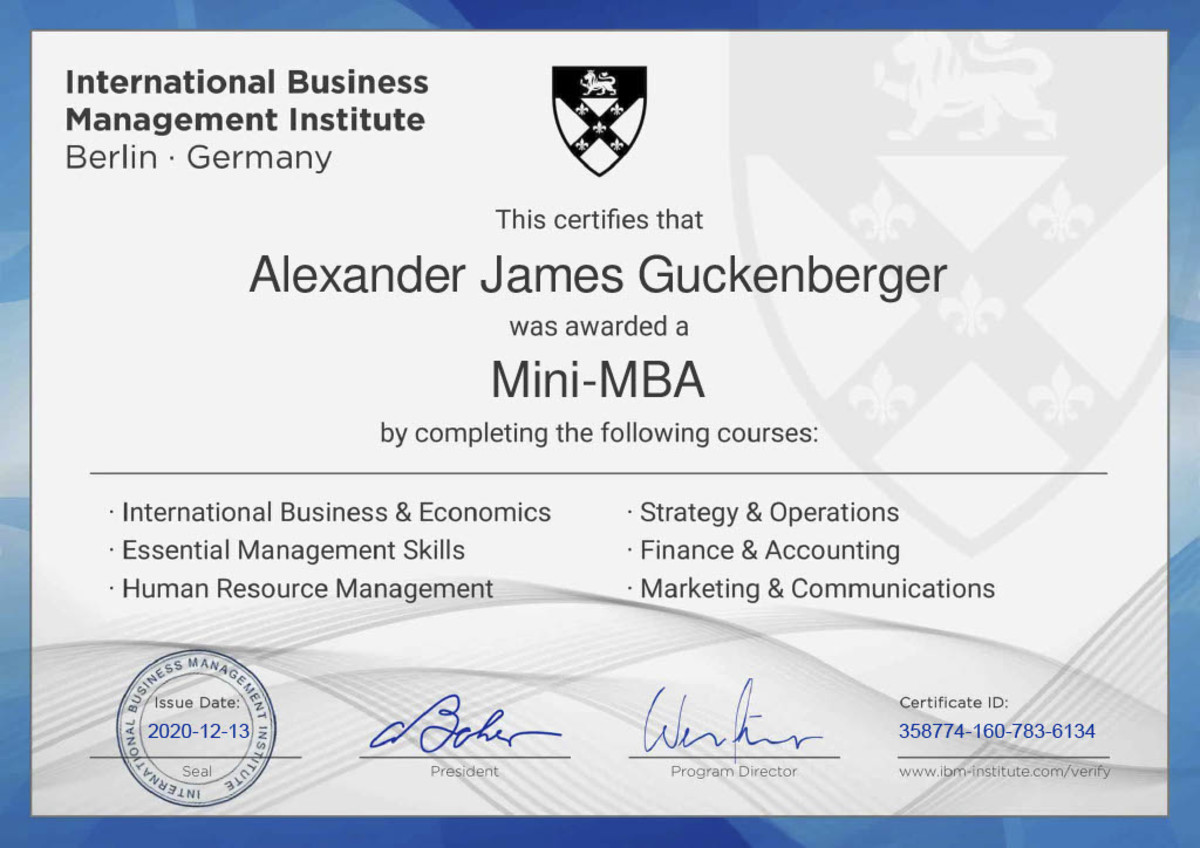How To Choose A Part Time MBA Program
How To Choose a Part Time MBA Program
Are you considering a part time MBA Program? Here are eight student secrets that will help you choose the right MBA Program and get the most out of the program after you’ve enrolled.
In my late 30s, I completed my MBA part time while working full time. The experience itself was very rewarding, a great learning experience and offered valuable networking opportunities. Now that I have my Masters in Business Administration, especially in this challenging economy, I feel my qualifications are more competitive and the MBA helps to set me apart from other colleagues or candidates.
In addition to what I learned in my classes and from fellow students, I also learned what sets a MBA program apart from other business school programs. Before you enroll in a part time MBA or an Executive MBA program, you should consider the following tips…
1) Look for a business school that requires students to have work experience
The knowledge gained from a MBA program comes from a variety of sources including your professors, your reading materials and most importantly, from your fellow students. Therefore, the mix or profile of students in your classes is very important.
The university where I received my MBA had a standard part-time MBA program and what they called the five year plan. In the five year plan, full time undergraduate students stayed an extra year in order to receive a MBA. And, the five year students took classes both during the day and in the evening. So, the mix of students in my evening classes ranged from 22-23 year olds with little to no work experience and 35-45 year old professionals with 10+ years of experience.This added challenges during class discussions and group projects. It was not uncommon for some of the younger students to be texting and surfing the internet while the class was in session.In contrast, many of the older students were relying on tuition reimbursement to pay their way and since most programs require A or B grades to get fully reimbursed, these students were more engaged and took the MBA classes more seriously.I would recommend applying for MBA programs that require students to have a minimum number of years of work experience. This will lead to more fulfilling class discussions and better networking opportunities.
2) Actively Network With Your Fellow MBA Program Students
Networking within a part time, business school program can be challenging, Students usually arrive close to the class starting time and leave immediately after the class ending time to drive home to their families and prepare for the work days ahead.
With that said, when I did make the time to network, I met some great new friends and business contacts that have proven valuable in the years since I graduated. The online networking sites including Linked In and Facebook, make it easier then ever before to “stay in touch”.As you’re sitting in class, think beyond “fellow students” and consider that some of these classmates could be hiring managers or key contacts in firms that you may want to apply to in the future. Be strategic when your professor announces a group project assignment. Look for other students with your career interests and ask to be on their team. Bring business cards with you and distribute them, where it makes sense.Get noticed in class by asking insightful questions or adding valuable comments during discussions. This may prompt other students to approach you and network. (And should help your class participation grade!)If you have the time and interest, you should consider joining one of the business school clubs such as Women in Leadership or Young Entrepreneurs. These business groups give you an opportunity to network with students outside of your regular classes, get involved in fun activities and look great on your resume.
3) Network With Your Business School Professors
Many professors who teach classes within business programs are experts in their field and are very well connected. Try Googling or Yahooing your professor to see if they’ve been published or who they’re linked to on social networking websites.
For example, if you want to expand your career in Information Security and you take a MBA class on that topic, make a point of chatting with your instructor before class or on breaks. You may even want to take the time to set up a brief one on one session during the professor’s office hours. These instructors often know the senior executives at local companies that specialize in their areas of expertise. They could refer you or provide a recommendation at a future point in your career.4) Plan to take an International Business Elective… With Travel
All Masters in Business Administration programs require that students take some mix of elective classes and most larger universities offer international travel choices. For example, my business school offered choices including Japanese business, India business and one on Ireland’s technological advances. For all three trips, students traveled abroad for several weeks, met international business leaders and fellow students, read related texts and study materials and were required to write several papers on key learnings.
I chose to participate in the Japan trip as one of my business electives. When I think about my MBA program and the “stand-outs” or highlights, the Japan trip rises to the top. I saw things and learned things that would not have been possible, had I stayed in the U.S. The trip was challenging and did get me out of my comfort zone, but those were also some of the reasons it had such a positive impact.
5) Look for a Business School With An Online Program
At some point during the MBA completion process, you are going to have some scheduling challenges. Perhaps you’ve been chosen for a high profile project at work or, even better, get a promotion. Perhaps your wife has just delivered twins- congratulations! Or, you might live in an area with lots of snow during the winter and are worried about commuting.
For all these reasons choosing a college or university that offers some mix of online classes can really help you. These virtual or online programs are all a little different, but most give you the flexibility to attend classes via your computer and participate via email or instant messaging, attend pre- recorded lectures at your own pace and timeline and work on group projects with other students via community chat rooms.The virtual nature of these online courses should give you the flexibility you need, while allowing you to continue to make progress on the completion of your degree,You've Seen the MAC VS PC TV Ads.. Here's FT VS PT MBA
More MBA Program Tips
A) Choose the right business school: To help zero in on which MBA program to choose, you should complete some research into which Colleges or Universities have won “best part time program” awards. US News and World report publishes a yearly list of the best Graduate Schools with a sub topic of the Best Part Time MBA programs. Click here for the most recent list. For 2008, New York University in New York won top honors for part time business school programs.
Business Week online also lists the profiles for 200 part time MBA programs across the United States.
B) Buy Books Online: In the olden days, in the 90’s, you had to buy all of your school books from the college book store, which often had very inconvenient business hours. Today, the majority of books can be purchased online in the comfort of your home, with both new and used options, and usually for a lower cost than the college book store’s.
C) Save Your Business Research Papers, Group Projects & Book Reviews: In graduate school you’ll be writing a lot of school papers and some subjects overlap. For this reason, always keep electronic copies of your papers, projects and sources. This may save you time on future papers, not to plagiarize but to give you ideas and direct you to sources you may have forgotten were helpful.









